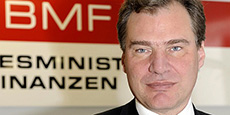Industry leaders join Advisory Boards
MODUL University’s advisory boards are made up of faculty members and industry professionals whose input is sought for development of curriculum and guidance in student programs that will further the educational experience. These leaders of business and industry bring their experience for the best possible development and career opportunities for graduates. The approach integrates economic coaching for the scientific community.
MODUL University Vienna is continuing the expansion of its already high-caliber university advisory board with renowned industry partners. Dieter Fenz, Director General of the Vienna Marriott Hotel, Norbert Kettner, director of the Vienna Tourist Board and Michaela Reiterer, director of Boutique Hotel Stadthalle have recently signed on to the Advisory Board for the Department of Tourism & Hospitality.
[img_assist|nid=4473|title=|desc=|link=none|align=left|width=200|height=299]
The Department of New Media Technology has added new advisors Dr. Gerhard Popp, Head of the Directorate General V, Information and Communication Technology, of the Austrian Federal Ministry of Finance; and Mag. Martin Hammerschmid, Country Manager of EMC Computer Systems Austria, to further strengthen the board.
Renate Balic-Benzing, Head of the Academy of Management Executive Office of the City of Vienna, rounds out the Advisory Board of the Department of Public Governance and Sustainable Development.
The idea behind the Advisory Board is simple yet effective: high-ranking and senior decision makers from all sectors of the economy contribute their experience and knowledge to strengthen the study programs and research directions, and students benefit from the expertise of active practitioners whose input can help them in their future careers.
"We consider our advisory board members as consultants who contribute important know-how for the practical design of our study programs," said Prof. Karl Wöber, President of MODUL University Vienna. "Through the advisory boards, we guarantee the highest practical relevance of research and teaching on Kahlenberg. Their input offers a career boost for the students, as the demands of future employers and the expectations of the leaders of tomorrow are considered from an industry perspective and taught in the best possible way. "
Integrating the advice of the Advisory Boards into the study programs allows students the best possible conditions for real-life studies with improved career opportunities in the workplace. "The members of our three advisory boards are very interested in the qualifications of potential employees. Nearly all graduates of economic studies aspire to leadership positions; the practical training is essential for their future success," concluded Wöber.
Pictured top right: Dr. Gerhard Popp
Pictured in text: Mag. Martin Hammerschmid





